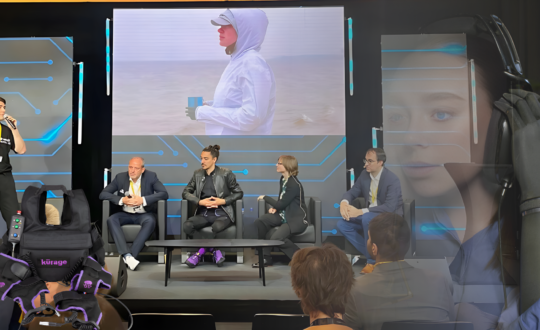ITU and ADA (Autonomous Drivers Alliance) aim to stimulate global dialogue around performance standards for the AI ‘Drivers’ steering autonomous vehicles.
This dialogue will begin at an ITU-ADA workshop to be held in Budapest, Hungary, 10 September 2019, in conjunction with ITU Telecom World, 9-12 September 2019.
The workshop’s morning sessions will share insight into the state of the art in autonomous driving technology, setting the scene for an afternoon focused on delivering the first iteration of a roadmap towards the establishment of performance standards for AI on our roads.
< Seats are limited: Register to participate >
“Should AI ‘Drivers’ be held to the same legal driving standards as human drivers? That’s certainly the public expectation,” says Bryn Balcombe, Chief Strategy Officer of Roborace, a sports media business developing completely new forms of autonomous motorsport.
Roborace established the non-profit association ADA to contribute to global action in the interests of road safety.
“We are proposing a Turing Test for the road,” says Balcombe. “A test that defines a minimum performance threshold that can be standardized and harmonized internationally.”
The original Turing test is a test of a machine’s ability to exhibit intelligent behaviour equivalent to, or indistinguishable from, that of a human.
“We need to go beyond the technical standards by which cars are normally judged and instead look at how we judge human driving behaviour – we need to look at the road regulations,” says Kirsty Lloyd-Jukes, CEO of Latent Logic, a company focused on ‘autonomous systems that model human behaviour’.
“We would be testing if an autonomous vehicle can collaborate and coexist with humans – that’s drivers, cyclists and pedestrians – safely and capably on the roads; whether it can understand and predict intent,” says Lloyd-Jukes.
The proposed Turing Test for autonomous vehicles would be based on three principles to meet the burden of proof:
- Prove AI never engages in careless, dangerous or reckless driving behaviour
- Prove AI remains aware, willing and able to avoid collisions at all times
- Prove AI meets, or exceeds, the performance of a ‘competent & careful’ human driver.
“If I’m to place my daughter’s life in the virtual hands of an AI ‘Driver’, I would absolutely expect that these three principles can be met continually throughout each journey,” says Balcombe. “That requires continual assessment of AI ‘Driver’ performance while in operational use.”
Confirmed speakers at the workshop include:
-
- Stefano Ammirati, Director of Road Safety & Global Advocacy, FIA (Fédération Internationale de l’Automobile)
- Bryn Balcombe, CSO, Roborace and ADA
- David Fidalgo, Co-Founder, AEVAC (Asociación Española del Vehículo Autónomo Conectado)
- Zoltán Hamar, Managing Director, Zala Zone Autonomous Test Track
- Hironao Kawashima, Professor Emeritus, Mobility Culture Research Center, Keio University
- David Lanyi, Head of Machine Learning Methods, Continental AG Deep Learning Competence Center
- Jun (Harry) Li, Chair FG-VM, TIAA (Telematics Industry Application Alliance, China)
- Kirsty Lloyd-Jukes, CEO, Latent Logic
- Richard Woods, Vice President, Towards Zero Foundation
Learn more about the future of transport from the wrap-up video of the Future Networked Car Symposium 2019.












